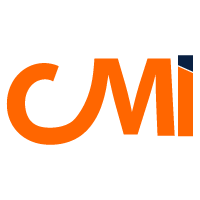Blog
CMI 715 Strategic Approaches to Equality Diversity and Inclusion
- March 1, 2023
- Posted by: Scarlett
- Category: CMI Level 7

In today’s globalized and diverse workplace, creating a culture of equality, diversity, and inclusion (EDI) is crucial for the success of any organization. Leaders must understand the strategic approaches to EDI and develop a plan to promote a culture that values and embraces diversity, fosters inclusivity, and ensures equality for all employees. The aim of CMI 715 Strategic Approaches to Equality Diversity and Inclusion is to equip leaders with the skills and knowledge necessary to develop and implement effective EDI strategies within their organizations. The course covers a wide range of topics, including understanding the business case for EDI, recognizing unconscious bias, and the legal and ethical considerations of EDI. Through this course, leaders will learn how to create a culture of inclusivity and equality, foster a diverse workforce, and improve employee engagement and retention. They will also develop the skills to lead EDI initiatives within their organizations, including developing and implementing effective EDI policies and practices, conducting EDI audits, and measuring the impact of EDI on organizational performance. Ultimately, CMI 715 Strategic Approaches to Equality Diversity and Inclusion is designed to help leaders create a workplace that values and celebrates diversity, promotes inclusivity, and fosters equality for all employees. By completing this course, leaders will be better equipped to lead their organizations to success and make a positive impact on their employees, customers, and society as a whole.
Aims of unit
The importance of promoting equality, diversity, and inclusion (EDI) in the workplace cannot be overstated. Not only is there a moral obligation to treat all employees fairly and with respect, but there are also financial and legal incentives for organizations to do so. Furthermore, a diverse and inclusive workplace has been shown to improve employee engagement and retention and ultimately lead to better organizational performance. CMI 715 Strategic Approaches to Equality Diversity and Inclusion is designed to help leaders understand the strategic importance of EDI and develop the skills necessary to create a culture of inclusivity and equality within their organizations. This course provides leaders with an in-depth understanding of the legal and ethical considerations of EDI, as well as the skills and knowledge needed to develop and implement effective EDI policies and practices. Through a critical assessment of structural inequality within both the organizational and societal contexts, leaders will gain the knowledge and insight needed to lead their organizations towards more inclusive and diverse workplaces. The course provides leaders with the opportunity to develop strategic priorities for EDI, ensuring that they are able to create a workplace that values and celebrates diversity, promotes inclusivity, and fosters equality for all employees. In short, CMI 715 Strategic Approaches to Equality Diversity and Inclusion is an essential course for any leader looking to create a culture of inclusivity and equality within their organization. By completing this course, leaders will be better equipped to lead their organizations towards success, while also making a positive impact on their employees, customers, and society as a whole.
What you’ll learn
CMI 715 Strategic Approaches to Equality Diversity and Inclusion is designed to equip leaders with the knowledge and skills needed to develop and implement effective EDI policies and practices within their organizations. Through this course, leaders will:
- Understand the strategic importance of EDI within the organizational context, and the legal and ethical considerations of EDI.
- Critically assess structural inequality within the organizational and societal contexts.
- Develop the skills and knowledge needed to create a culture of inclusivity and equality within the workplace.
- Identify and implement effective EDI policies and practices to promote inclusivity, diversity, and equality.
- Appraise the influence of EDI on strategic objectives, and develop strategic priorities for EDI.
By the end of this course, leaders will have a comprehensive understanding of EDI and its strategic importance and will be able to lead their organizations towards more inclusive, diverse, and equitable workplaces. They will have the skills and knowledge needed to create effective EDI policies and practices and will be able to make a positive impact on their employees, customers, and society as a whole.
Learning outcome
CMI 715 Strategic Approaches to Equality Diversity and Inclusion is designed to equip leaders with the knowledge and skills needed to understand and develop effective EDI policies and practices at a strategic level. Through this course, leaders will learn how to:
- Understand the strategic importance of EDI within the organizational context, and the legal and ethical considerations of EDI.
- Critically assess structural inequality within the organizational and societal contexts.
- Develop the skills and knowledge needed to create a culture of inclusivity and equality within the workplace.
- Identify and implement effective EDI policies and practices to promote inclusivity, diversity, and equality.
- Appraise the influence of EDI on strategic objectives, and develop strategic priorities for EDI.
By the end of this course, leaders will have a comprehensive understanding of EDI and its strategic importance and will be able to develop strategic priorities for EDI that align with the overall goals of their organization. They will be able to create effective EDI policies and practices that promote inclusivity, diversity, and equality, and will be able to make a positive impact on their employees, customers, and society as a whole.
How can we help?
CMI 715 Strategic Approaches to Equality Diversity and Inclusion is a complex and challenging course, and students may face difficulties in completing their assignments. In such cases, CMI assignment help can be a valuable resource to assist students in completing their assignments. Here are some ways in which CMI assignment help can help students with their CMI 715 assignments:
- Expert guidance: CMI assignment help provides students with access to subject-matter experts who have extensive knowledge and experience in EDI. These experts can provide guidance on the concepts and theories covered in the course and help students with their assignments.
- Assignment writing assistance: CMI assignment help can provide students with assistance in writing their assignments. They can help students with researching the topic, writing the assignment, and editing and proofreading the final draft.
- Plagiarism-free assignments: CMI assignment help ensures that all assignments are original and plagiarism-free. They use plagiarism detection software to ensure that the assignments are free of any copied content.
- Timely delivery: CMI assignment help ensures that all assignments are delivered on time. They understand the importance of meeting deadlines and work to ensure that students receive their assignments before the deadline.
- 24/7 support: CMI assignment help provides 24/7 support to students. Students can reach out to them at any time with their queries or concerns and receive prompt assistance.
In summary, CMI assignment help can be a valuable resource for students struggling with their CMI 715 assignments. They provide expert guidance, and assistance with writing the assignments, ensure that assignments are original and plagiarism-free, and deliver assignments on time.
Resources
- Abramovich, G. and Mercer Traavik, L.E. (2017). Support for diversity practices in Norway: Depends on who you are and whom you have met. European Management Journal, 35 (4), 454-463.
- Barr, D. and Campbell, C. (2011). Ethics in Decision-Making. (Good Practice Guide). London: Institute of Business Ethics.
- Buchanan, D. and Huczynski, A. (2016). Organizational Behaviour an Introductory Text. 9th ed. Harlow: Prentice Hall.
- Fujimoto, Y., Härtel, C. and Azmat, F. (2013). Towards a diversity justice management model: integrating organizational justice and diversity management. Social Responsibility Journal, [online] 9(1), 148–166. available from https://doi.org/10.5465/256486 [15 August 2018].
- Goyal, S. (2009). Diversity in the Workplace. HRM Review [online]. available from http://thestrategist.in/wp-content/uploads/2014/11/HRM-REVIEW_Dimension-of-Diversity.pdf [15 August 2018].
- Kumra, S. and Manfredi, S. (2012). Managing Equality and Diversity: Theory and Practice. Oxford: OUP.
- Malone, T. (2019). Equality, Diversity & Inclusion: A practical guide: Terminology, Communities and Dignity.
Related Articles:
[learn_press_profile]
Why Choose Us?
- GPT Zero
- 100% Non-plagiarised Papers
- Dedicated human resource writers
- 24/7 /365 Service Available
- Affordable Prices
- Money-back and Privacy guarantees
- Unlimited Amendments upon request
- Satisfaction guarantee
